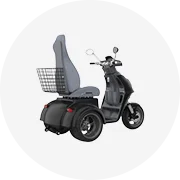
Small Concrete Pump Truck Small Mobile Construction Column Pump Diesel Mini Concrete Pumping Machine


Diesel Engine Truck Mounted Cement Mixer Customized Capacity 2-12CBM Concrete Mixer Drum Concrete Mixing Tank



















Cement trucks, also known as concrete mixers or concrete trucks, are specialized vehicles designed for transporting and mixing concrete at construction sites. These trucks are essential devices in the construction industry, particularly in projects that require freshly mixed concrete.
Concrete trucks are designed to cater to specific construction needs, offering variations in mixing methods, transportation capabilities, and overall efficiency. One common type is the Drum Mixer Truck, widely used in the construction industry. The Drum Mixer Truck features a rotating drum on the rear of the vehicle, where the concrete components are mixed during transit. This design allows for continuous mixing, ensuring a uniform and homogenous concrete mix upon arrival at the construction site. Drum mixers come in various sizes, with capacities measured in cubic yards or cubic meters, accommodating different project requirements. They are known for their versatility and are suitable for diverse construction applications.
Another type is the Volumetric Mixer Truck, which offers a unique approach to concrete mixing. Unlike drum mixers that mix concrete during transit, volumetric concrete trucks have separate compartments for cement, sand, aggregates, and water. These compartments are individually metered, allowing for precise measurement of each ingredient. The mixing occurs on-site when the components are combined in the mixer drum. Volumetric cement trucks provide flexibility as they can produce different mix designs and quantities on demand. This type of truck is particularly useful when the construction project requires various concrete specifications or when the concrete needs to be produced in remote locations. Additionally, volumetric mixers reduce waste as they only mix the exact amount of concrete needed for a specific task. Stationary Mixer Trucks are a third type, and they are commonly used in concrete production facilities. Unlike transit mixers, stationary mixers do not transport concrete; instead, they are stationed at a central mixing plant. These mixers are equipped with large drums that continuously mix concrete, and the ready-mixed concrete is then transported to construction sites using other vehicles. Stationary mixers are suitable for high-production facilities where a consistent and large volume of concrete is required. They contribute to the efficiency of large-scale concrete production processes by ensuring a constant supply of freshly mixed concrete.
Different types of cement trucks find applications across a spectrum of construction projects, each tailored to specific needs based on factors such as project scale, accessibility, and concrete requirements. Small cement trucks, often referred to as mini mixers or mini concrete trucks, are compact vehicles designed for projects with limited space or smaller concrete needs. These mini cement trucks are highly maneuverable, making them suitable for navigating tight construction sites or urban areas where larger vehicles may face challenges. Small cement trucks are commonly used for residential projects, small renovations, or landscaping endeavors, providing a convenient and efficient solution for delivering a controlled quantity of concrete.
On the other end of the scale, big cement trucks, characterized by their larger drum capacities, are employed in major construction projects that demand a substantial volume of concrete. These trucks are pivotal in projects such as large-scale infrastructure development, high-rise construction, or extensive pavement projects. Their ability to transport significant quantities of freshly mixed concrete ensures a continuous and efficient supply to meet the demands of extensive construction endeavors. Big cement trucks contribute to the timely completion of sizable projects by providing a consistent and reliable source of ready-mixed concrete.